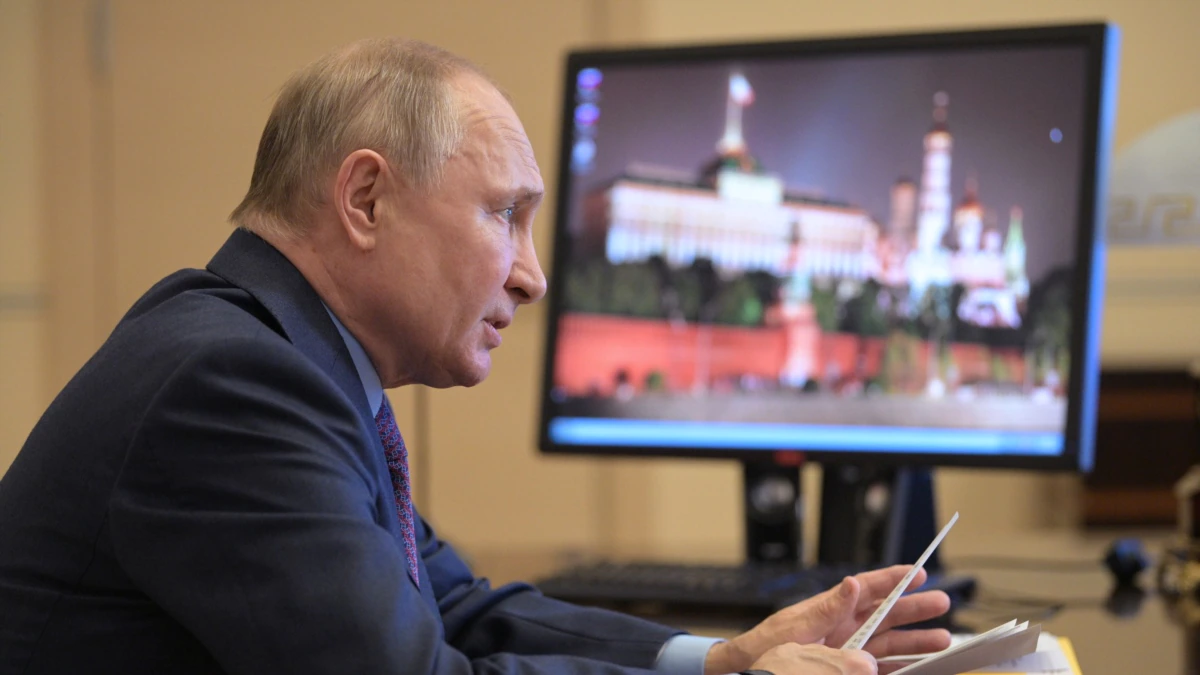
Russian President Vladimir Putin is scheduled to give his 17th annual state-of-the-nation address to a joint session of the Russian parliament in Moscow on April 21 amid a slew of crises both home and abroad.
Internationally, the nationally televised address comes at a time of heightened tensions between Russia and the West, a simmering conflict in eastern Ukraine, and unrest in neighboring Belarus following a disputed presidential election last August.
Domestically, Putin will speak just hours before supporters of imprisoned opposition leader Aleksei Navalny gather for mass protests to demand the anti-corruption campaigner be given independent medical care, as well as amid preparations for legislative elections to be held before September 19 and the continued economic and social fallout from the global coronavirus pandemic.
On the eve of the speech, U.S. Ambassador to Moscow John Sullivan announced he would return to the United States for consultations, just days after Washington imposed a fresh batch of sanctions on Russia for its alleged cyberattacks on the United States and interference in the 2016 and 2020 presidential elections.
Russia has also ramped up its military capabilities along its border with Ukraine and in and around the annexed Ukrainian Black Sea region of Crimea. Since 2014, Russia has provided military, economic, and political support to separatist formations in parts of eastern Ukraine that are waging war against Kyiv. Tensions have been on the rise in recent weeks with sporadic fighting breaking out and the peace process remaining stalled.
Meanwhile, police raided several regional offices of Navalny’s organizations in anticipation of the protests scheduled for the evening of April 21. Navalny has been on a hunger strike for more than three weeks, demanding that he be seen by his own doctors. Prison authorities transferred him on April 19 to a prison with a hospital, despite saying that his health was “satisfactory.”
Russia is preparing for elections to the State Duma, the lower house of parliament, with the ruling United Russia party facing historically low popularity ratings. In recent weeks, the authorities have cracked down on dissent in what many analysts see as a bid strictly to control the election process and outcome.
In the past, Putin has sometimes used the speech to put forward significant policy moves. Last year, he announced preparations for a raft of constitutional amendments that ended up including one that makes it possible for him to remain president until 2036. Shortly after the speech, then-Prime Minister Dmitry Medvedev and the cabinet resigned, and former Federal Tax Service head Mikhail Mishustin was tapped to replace him.
In 2018, Putin gave a lavish, high-tech presentation that included video presentations of several advanced weapons systems, including an intercontinental ballistic missile, a nuclear-powered cruise missile, an unmanned nuclear-powered underwater drone, and the Kinzhal hypersonic missile system.
Putin’s speech is scheduled to begin at noon local time in Moscow. In addition to members of both chambers of parliament, the audience will include the prime minister, the cabinet, senior judges, military and security officials, senior leaders of the Russian Orthodox Church and other major religious groups, and other guests. According to TASS, some 450 journalists have been accredited to cover the events.
Putin, a 68-year-old former KGB officer, has led Russia as president or prime minister since 2000.
